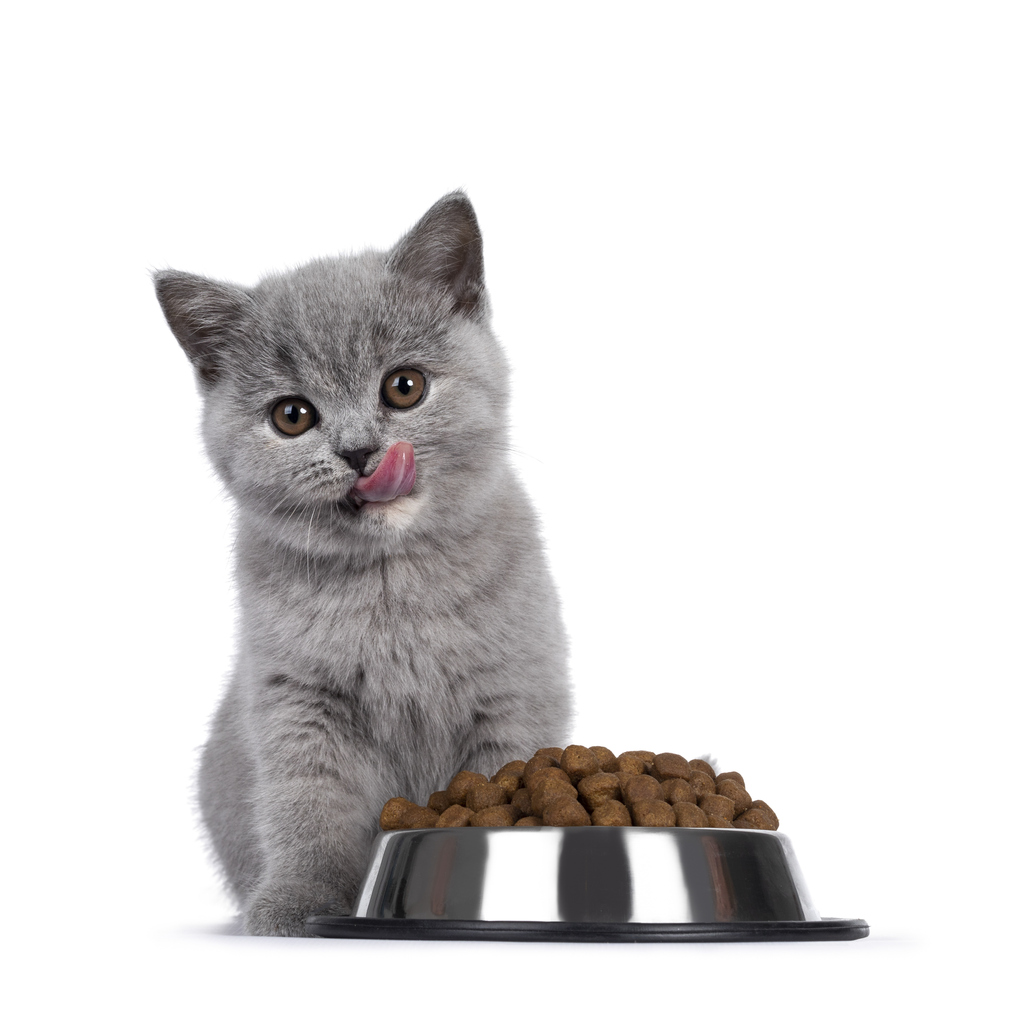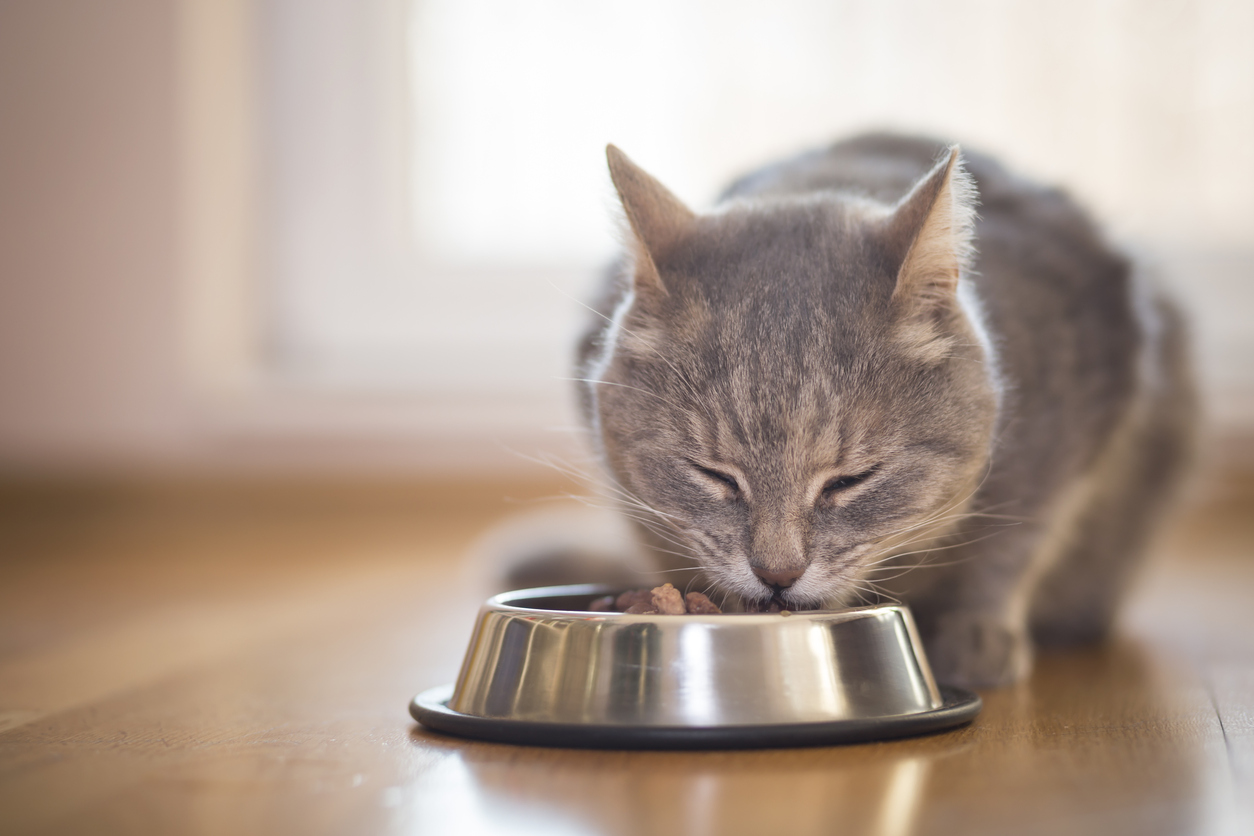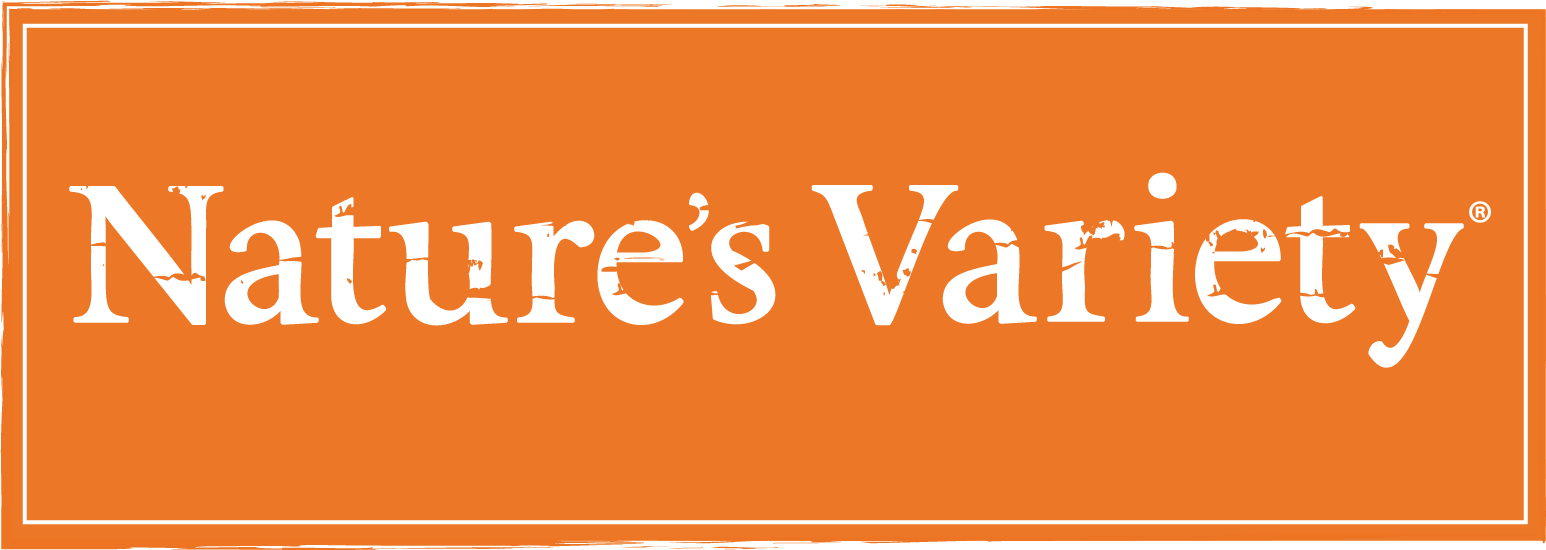What should a kitten eat: when and how to feed your new pet

Welcoming a new kitten is an exciting time. However, with an ever-increasing variety of brands and a focus on healthier eating, picking the right diet can be difficult.
Therefore, one of the most common questions among pet owners is: what should a kitten eat?
In this article, you'll find tips on how and when to feed your kitten, as well as what to look for when choosing a diet for your kitten.
https://www.istockphoto.com/es/foto/cat-de-alimentaci%C3%B3n-gm647289304-117587623
What should a kitten eat: main nutritional needs during the first few weeks
As kittens grow (except during lactation), their nutritional and energy requirements begin to decline after approximately six months of age. At this period, it’s important to consider what should a kitten eat and the recommended nutritional needs.
Protein
A kitten’s protein requirements during growth are higher than those of adult cats. This means its diet should consist of high quality, highly digestible protein to facilitate development. Moreover, calcium and phosphorus should also be present in its diet.
Amino acids
There are many essential amino acids required in a cat's diet. Taurine deserves a special mention. While most mammals are able to sufficiently synthesise taurine from other amino acids, cats require dietary taurine to maintain good health.
A deficiency in taurine can lead to life-threatening illness, including neurologic and cardiac diseases. Since taurine is only sourced from meat, a vegan diet is not an appropriate choice for both kittens and cats.
Fatty acids
Certain fatty acids play an equally important role in a kitten's diet. Fatty acids including arachidonic acid (AA) and docosahexaenoic acid (DHA) are essential in brain and ocular development. They’re best derived from food sources.
How often to feed a kitten?
What does a kitten eat in the first weeks of life and how often? When you first bring your tiny feline friend home, refrain from changing its diet within the first 3–4 days. If you’re introducing a new food, do it slowly over 5–7 days. By doing so, you can prevent food aversion or gastrointestinal symptoms, such as vomiting or diarrhoea.
Knowing how much to feed a kitten can be challenging. The amount varies considerably based on their breed, sex and neuter status, exercise levels and individual metabolic factors. Aim to follow the feeding instructions on your food packaging. During health checks and vaccination appointments, your veterinarian will make recommendations based on the body condition score. You should also tell the veterinarian if your kitten eats significantly more or less than the packaging recommendations.
What should a kitten eat?
As obligate carnivores, your cat’s diet should mainly consist of meat. Avoid raw meat of any kind, as it can carry harmful bacteria and parasites that can be life-threatening to a kitten.
Aside from your kitten’s preferences, it’s important to select a balanced kitten food. This includes:
adequate protein and energy;
an appropriate calcium phosphorus ratio;
essential amino acids;
antioxidants;
And fatty acids.
If you’re not sure whether to go for wet or dry food, the choice will often come down to the preference of your kitten. A combination of wet and dry food is a great option. Wet food provides a more balanced diet and is easier to digest. It also contains more moisture, which can be beneficial for cats who don't drink much water. Kibble, on the other hand, provides a crunch that helps clean teeth and can be more economical, as it usually contains fewer calories than wet food.
Tips on how to feed your kitten
Once you already know what your kitten should eat and how you feed your kitten often depends on their preferences, here are some tips you might find useful.
Choose the best way to feed your kitten
There are two options to feed your kitten:
allowing your kitten to graze throughout the day
feeding at regular intervals (typically 3 times/ day until 16 weeks of age)
Kittens are great at regulating their own food intake and prefer grazing as a style of feeding. However, allowing grazing may not be suitable for a multi-pet household. If grazing is challenging because of a dog or other cats in the household, try feeding your kitten higher up on a ledge.

Feed your kitten in different places of the house
The manner you feed your cat can contribute substantially to its mental health and enrichment. One way of achieving this is to offer food in different/ alternating areas of the house and by providing multiple food sources.
Enrichment feeding can also be achieved by feeding dry food in puzzles or ‘snuffle mats’ (they’re not just for dogs!) and wet food on lick mats. This may help with food aversion and ‘getting bored’.
Support your kitten’s growth and development
A balanced and nutritious diet is essential for your kittens' overall health. It’s important that your kitten is fed correctly from an early age to ensure healthy digestive, neurological, and ocular functions.
Choosing a good quality commercial food, such as Nature’s Variety, offers an easy solution to the challenges of home cooked meals and ensures their daily requirements are met with consistency. We only choose natural, high-quality ingredients, containing all the nutrients kittens need to help them grow up in optimum physical condition.
